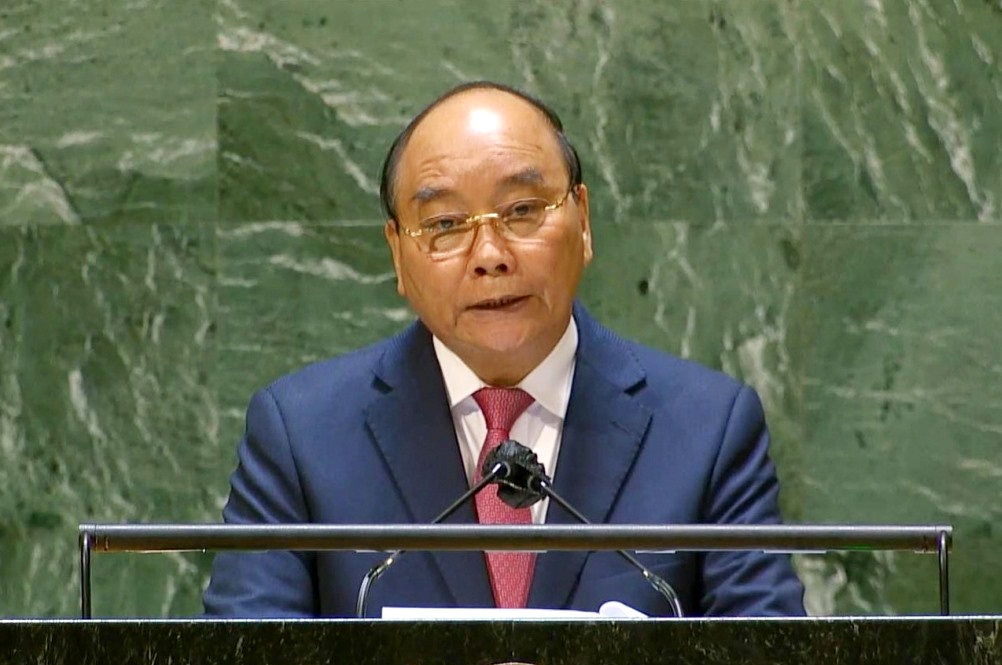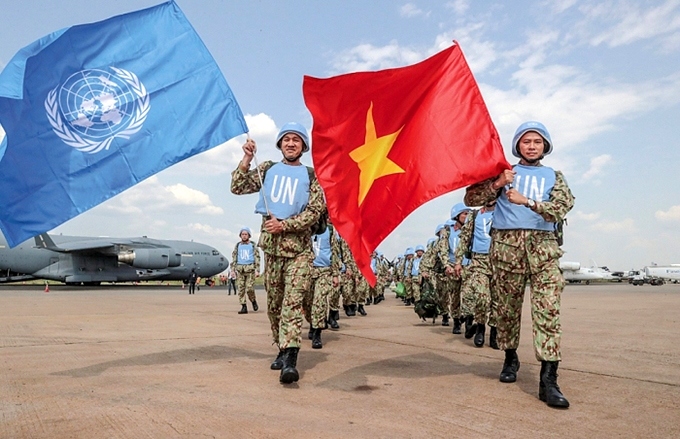Vietnam elevates its role in UN after 45 years of membership
VOV.VN - 45 years ago on September 20 Vietnam joined the United Nations, opening a new chapter in its relations with the world and creating conditions for the country to garner international support for its development and increasingly participate and contribute more deeply to global affairs.

The country was admitted to the UN more than two years after it achieved national reunification following victory in the historic Ho Chi Minh campaign on April 30, 1975. The UN shortly issued a resolution, calling for international support and assistance to be given to the country’s post-war reconstruction and poverty reduction.
From 1977 until the end of the 1980s when Vietnam faced an embargo imposed by the United States, the UN provided the most assistance to the Southeast Asian nation, ranging from overcoming war consequences to reducing poverty and boosting development. In the 1990s, the UN represented one of the leading organisations helping Vietnam to design policies and action programmes on economic and legal reforms, as well as supporting its further development and international integration.
In response, the country gradually joined and increasingly promoted its role as part of UN agencies. Since the second half of the 1990s it has participated in a number of leading bodies of the UN, such as the UN Development Programme (UNDP), UN Children’s Fund (UNICEF), the UN Educational, Scientific and Cultural Organization (UNESCO), the International Atomic Energy Agency (IAEA), and the Human Rights Council. It has been twice elected as a non-permanent member of the UN Security Council in both the 2008 - 2009 and 2020 - 2021 periods.
Along with its various achievements in the Doi Moi (Renewal) process and international integration, Vietnam has accompanied and contributed effectively to the common work of the UN and the wider world. It is noteworthy that it engaged in the planning and implementation of the UN’s Millennium Development Goals and Sustainable Development Goals to 2030, becoming an exemplary role model in implementing various programmes.
Furthermore, Vietnam actively participates in UN co-operation programmes on climate change response, disease prevention and control, hunger eradication and poverty reduction, and assistance to disadvantaged people. It also co-ordinates with the UN in carrying out trilateral co-operation initiatives to help African countries in agriculture, food, education, health, and poverty reduction.
When joining the UN Security Council, the country launched a range of important initiatives such as upholding the UN Charter and multilateralism, removing landmines, protecting women and children, as well as essential civilian facilities in war, a move which received strong support and consensus among UN members. It sent a total of 493 military officers and soldiers to UN peacekeeping forces and deployed four level-2 field hospitals in South Sudan and Abyei from 2017 to 2021.

Moreover, Vietnam actively promotes co-operation between the UN and ASEAN, in areas ranging from peace - security and development to responding to global challenges such as environmental protection, climate change, and pandemics. With regard to the East Sea, it continues to emphasise respect for international law, including the 1982 UN Convention on the Law of the Sea (UNCLOS), in order to ensure peace, stability, security, safety, freedom of navigation, as well as the legitimate rights and interests of coastal countries, while simultaneously promoting the peaceful settlement of disputes without further complicating the situation.
Over the past 45 years, the country has significantly contributed to the common work of the UN with a high sense of responsibility by engaging in planning international agendas based on national interests and the principles of international law, in order to create a level playing field for both large and small countries, for the cause of peace, security, and development.
A changing world requires Vietnam to continue to bring into full play its consistent foreign policy to garner greater international support and assistance for its development goals up to 2030 and 2045. This should be done whilst further promoting its proactive role in the common affairs of the world, for peace, security, development co-operation, and in addressing global challenges. Moving forward, it is expected to contribute more to the noble goals of the UN, i.e. to resolve conflicts, maintain peace, and enjoy stability for the sake of all people around the world.

